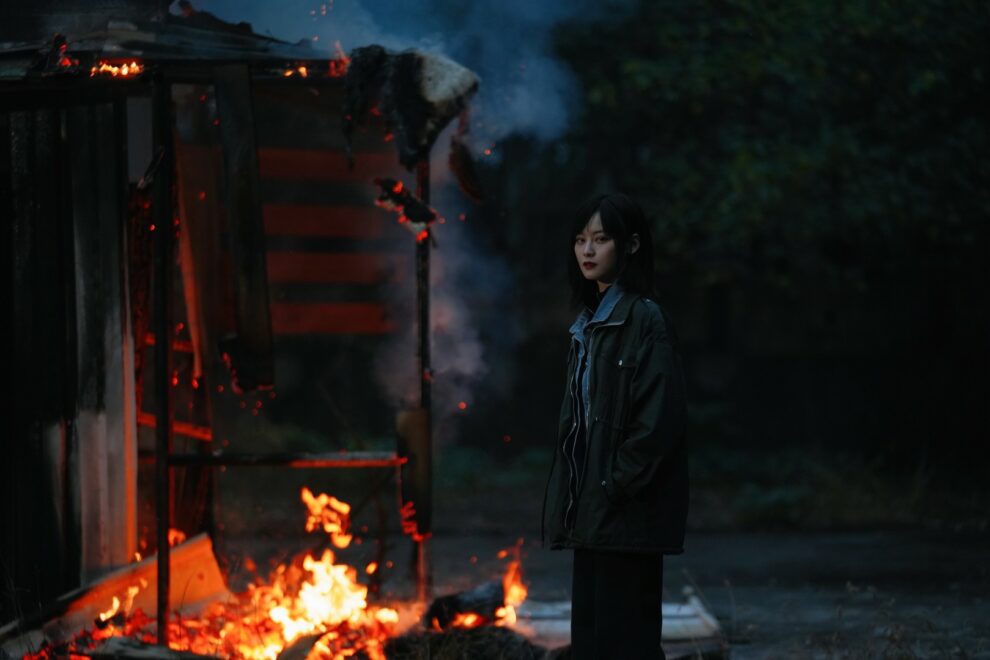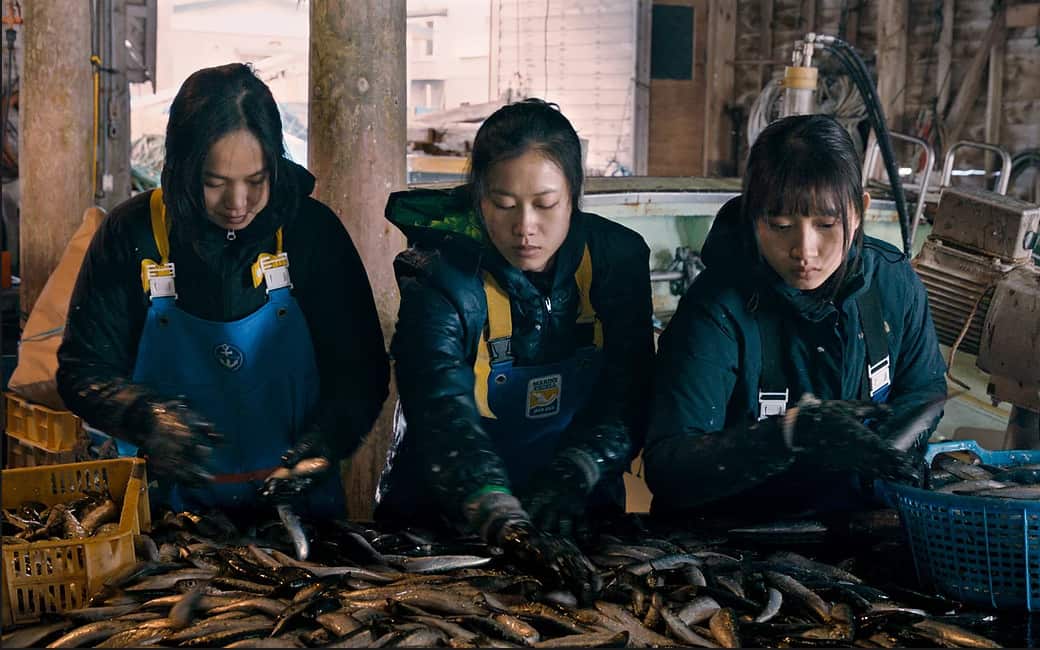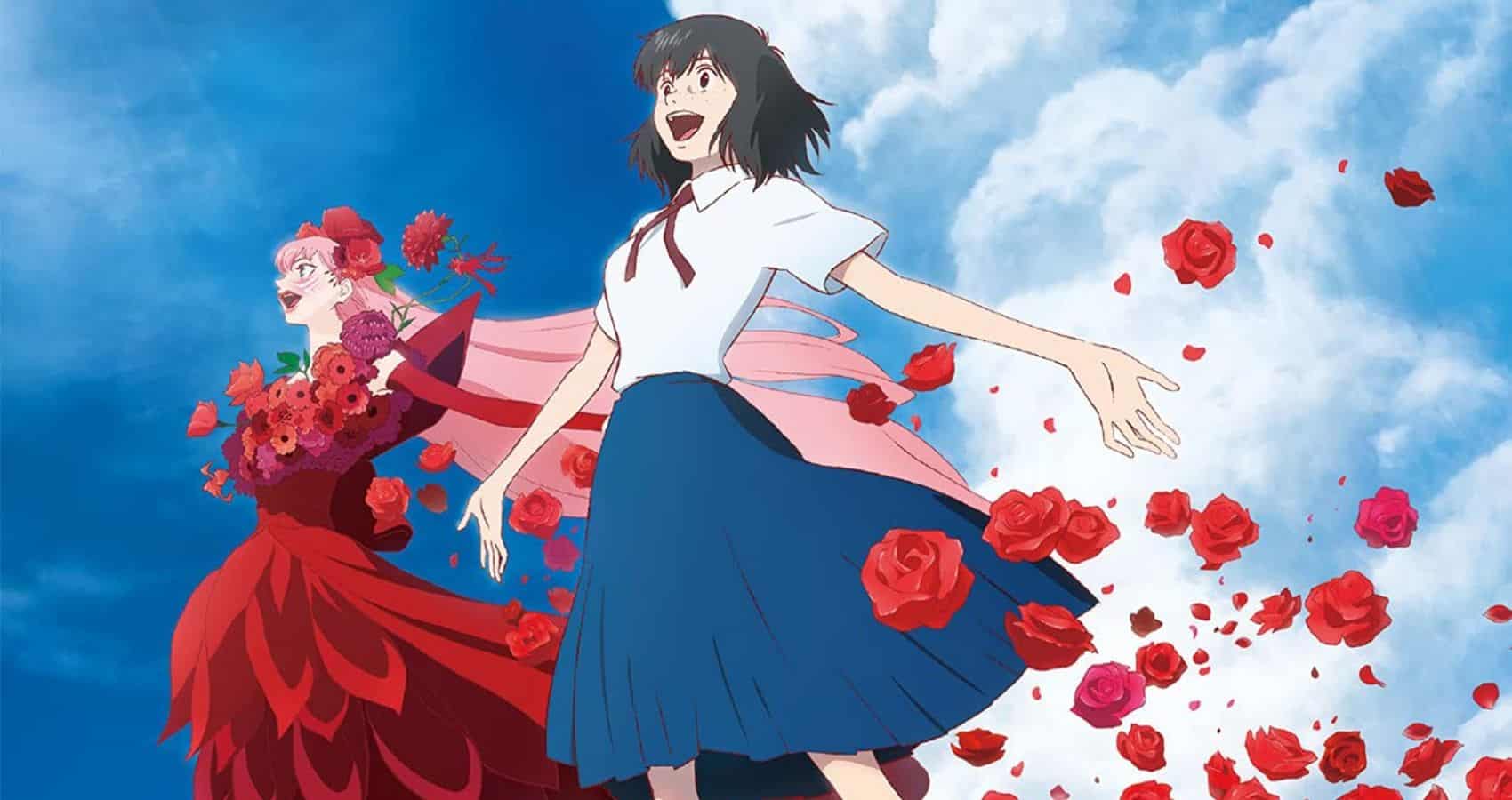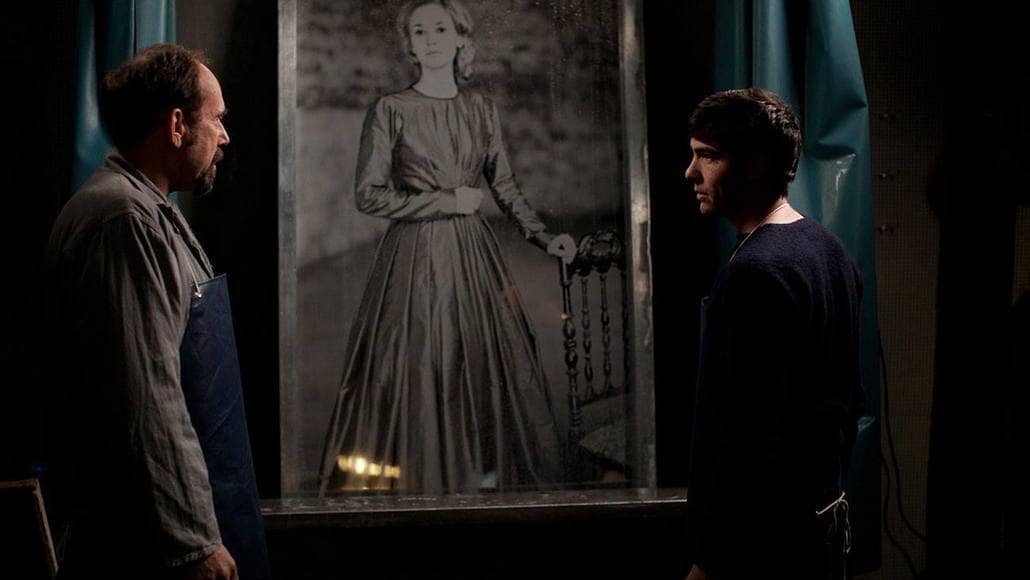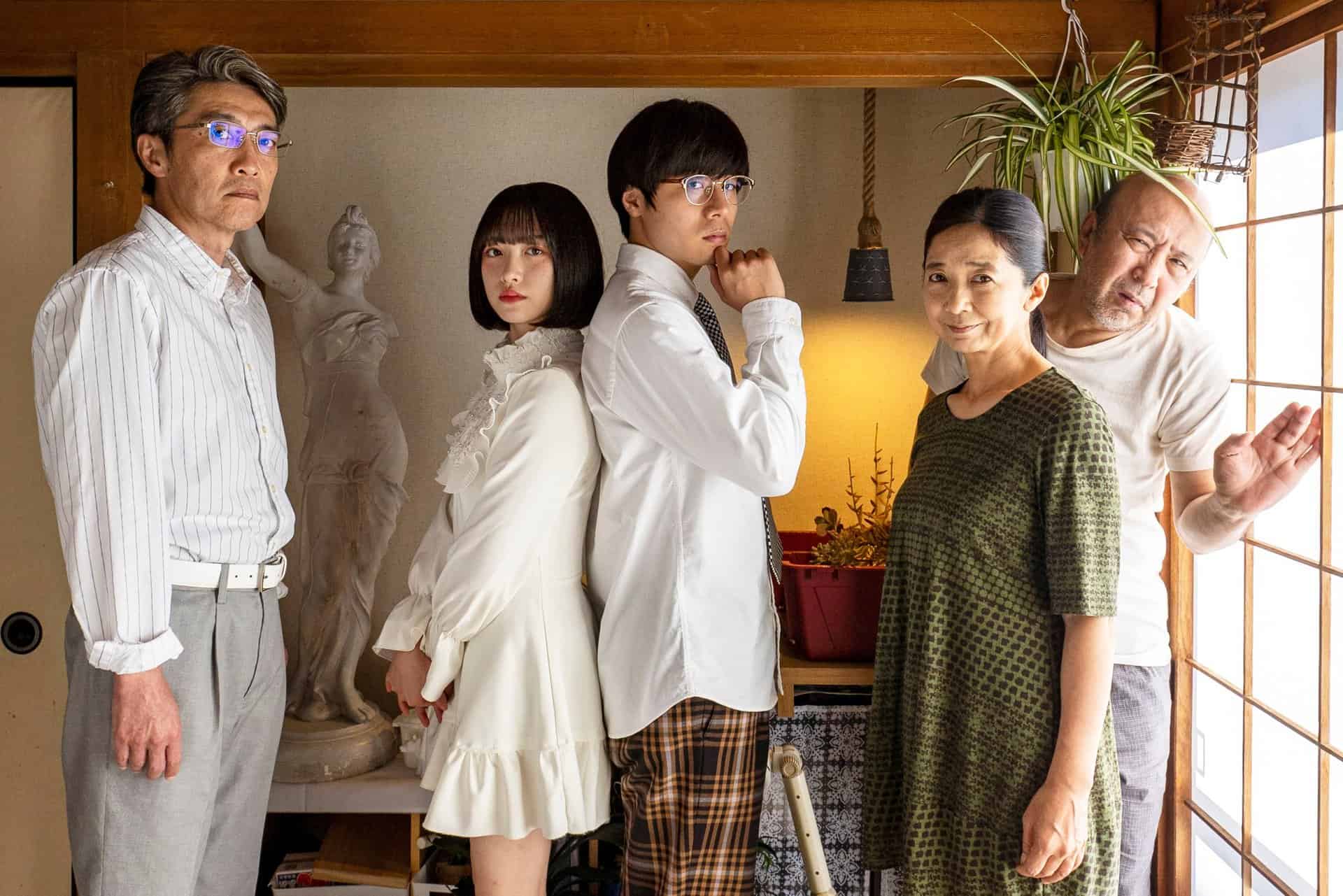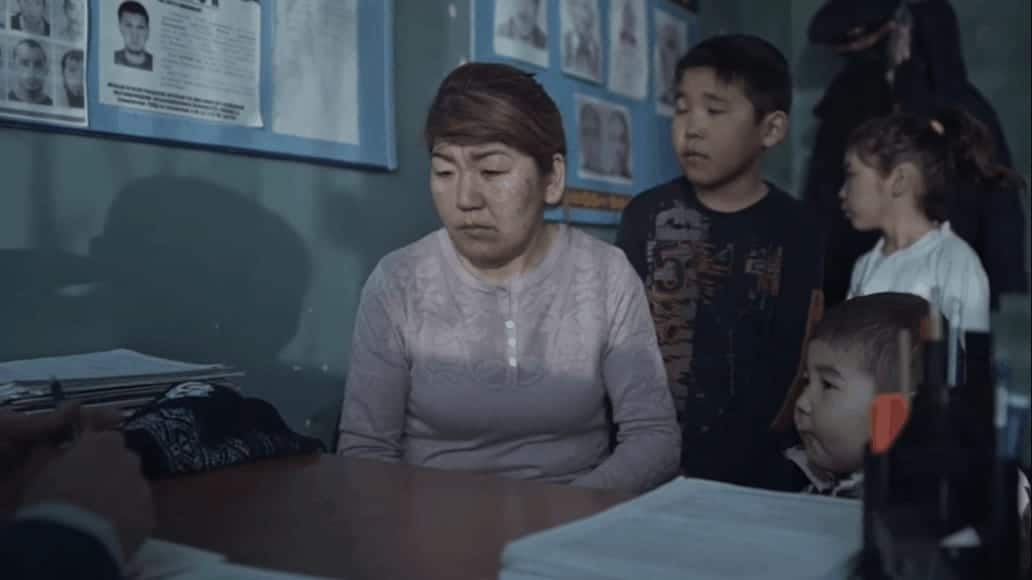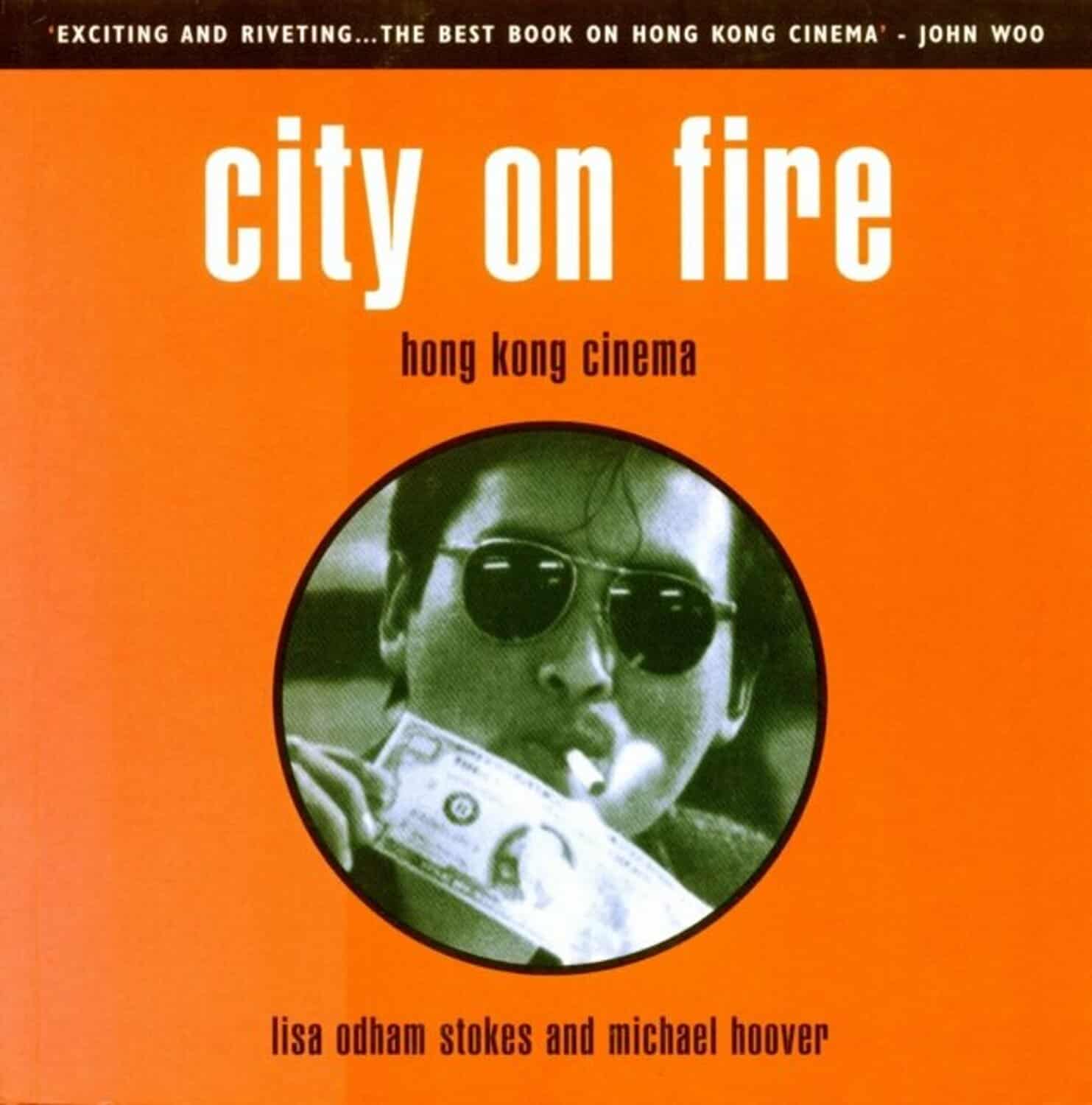“Growing Apart” (AKA “Vanished Girl”) premiered at FIRST International Film Festival in 2022, where it won the Best Performance Award and the Audience Award for Best Film, followed by a Jury Special Mention at Beijing International Film Festival 2023 and numerous nominations. Director and co-writer Long Lingyun was inspired for his project by the true story of a friend whose life had been heavily shaped by the consequences of the infamous Chinese one-child policy.
“Growing Apart” is screening at Mint Chinese Film Festival

In an opening scene that is evocative of Chungking Express' iconic sequence with Brigitte Lin, a mysterious young woman wearing a glamorous wig, lipstick and sunglasses walks briskly through an indoor market to meet a shady character and collect a fake ID. We will soon meet the girl behind the disguise; she is He Sheng (Shang Yuxian) a university student living with her strict and unpermissive divorcee mother He Xiuqin (Liya Ai) and the fake ID is something that – according to He Sheng's plan – will buy her a bit of freedom outside her mother's oppressive control over her life. On a parallel strand there is Cheng Fei (Xiaoke Yue) a young man who grew up with his paternal grandmother and his father Cheng Jianguo (Zhao-Yan Guo-Zhang). His mother died (supposedly in a car accident ) when he was a newborn, but talking about it is a big family taboo to which his father reacts aggressively. Cheng Fei loves skateboarding, to the despair of his frustrated father who had placed many expectations of a successful life on his precious male heir.
Cheng Fei and He Sheng become friends on a chat room (we are in 2005) where the girl is called Swallowtail Butterfly and they meet in person sharing their struggles. They eventually lose track of each other and 2 years later Cheng Fei finds a missing person flyer with his friend's photo, in his father's room. Puzzled by the reason why he kept that notice, Cheng Fei starts to investigate and eventually moves in, as a lodger, with He Sheng's mother. Slowly, all the pieces will come together to form a shocking and dramatic picture of two families, devastated by secrets, lies and guilt.
In 1979, the Chinese government implemented the one-child policy, a growing control measure in the attempt to restrain the country's fast expanding population, and in this way ease social and economic pressures. With a starting point of culturally ingrained gender inequality, the policy ended up endorsing the believe that the one heir of a family had to be a male, with ethically awful consequences to follow. Only recently, in 2015, the Chinese government officially lifted the one-child policy, allowing couples to have two children. This crooked protocol had profound practical and psychological repercussions that are still today lingering on the collective consciences and, most of all, are still shaping the women's role in Chinese society.
In his film, Long Lingyun tackles the topic of the Chinese one-child policy and its impact on the lives of ordinary people with respect and empathy, giving a voice to all the humans possibly scarred by it. Apart from a brief news announcement on the background, there is no mentioning or probing into the law itself, but only a humanistic point of view. So much so, that there are no monsters or villains in this rather bleak tale; all characters have their reasons, demons and burdens to deal with. We would love to find a scape goat and hate Cheng Fei's father for what he did and He Sheng's mother for how she dismisses her daughters' dreams of independence, but sadly they are also collateral victims of this cruel imposition.
The film highlights the backlash that such a nonsense policy can have on the people involved, but it also strongly remarks that women were (and still are) the most frequent casualties as they often bore the emotional burden of strict family planning measures; women were devalued and baby girls often faced abandonment, or even infanticide. “Growing Apart” tells many stories of profound emotional distress with toxic guilt undercurrents, all feeding into one big drama. Long choses to unveil slowly the truth and, if the film is slightly confusing in the first third, especially going back and forward from 2005 to 2007, it later proves to be very affective in delivering the punch, and the final revelation is strong and loud.
Zhao-Yan Guo-Zhang in the role of Cheng Fei's father Liya Ai as He Sheng's mother display brilliantly the skills of their long and rich acting career, but a special mention goes to the two young performers. Shang Yuxian and especially Xiaoke Yue, are very convincing and engaging as lost souls. Also noticeable is the high standard of the cinematography, crisp and assured in matching the rage and discouragement of the character.
“Growing Apart” is a strong and compelling critique of an unforgettable historical blunder and a compassionate look at the people left behind to pick up the pieces.


